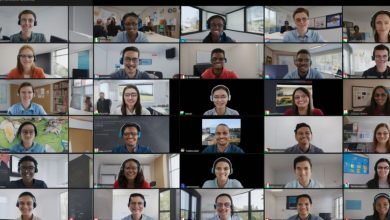Cultural Exchange Scholarships to Fund Your Global Goals
Cultural exchange scholarships open doors to study, intern, or volunteer abroad without worrying about tuition or living expenses. In this article, you’ll discover exactly what cultural exchange scholarships are, explore their benefits, examine top programs, learn how to craft a competitive application, and find budgeting strategies to stretch every dollar. By the end, you’ll have a clear roadmap to locate and secure the right scholarship for your global ambitions.
What Are Cultural Exchange Scholarships?
Definition and Purpose
Cultural exchange scholarships provide financial support for students and professionals to participate in programs abroad that emphasize cross-cultural learning. Unlike traditional scholarships that cover only tuition, these awards often include stipends for living expenses, travel allowances, visa assistance, and health insurance. Their core objectives are to foster mutual understanding between countries, build leadership skills, and encourage collaboration across borders.
Types of Scholarship Models
-
Government-Funded Scholarships
Programs like Fulbright and Chevening are backed by national governments to support international study, research, or internships. They typically cover tuition, living stipends, travel costs, and health insurance. -
Nonprofit and NGO Grants
Organizations such as AFS and Rotary Foundation offer grants that blend cultural immersion with community service or leadership training. These often cover program fees, partial travel costs, and local support. -
University-Sponsored Exchange Programs
Through frameworks like Erasmus+ and DAAD, many universities offer scholarships for students to study or intern abroad. These usually include a monthly stipend and travel subsidy. -
Corporate and Private Foundation Awards
Foundations such as the Ford Foundation and Open Society provide grants for specific fields—often combined with mentorship opportunities—that cover tuition and living costs.
Benefits of Securing a Cultural Exchange Scholarship
Financial Advantages
-
Tuition and Fees Coverage
Fully funded scholarships eliminate program or placement fees, allowing you to access top universities or research centers abroad at no cost. -
Stipend for Living Expenses
Monthly living allowances cover rent, utilities, groceries, and transportation. For example, Erasmus+ traineeships provide €350–€700 per month, depending on the host country. -
Travel Allowances
Round-trip airfare or a travel stipend ensures you can arrive and return without depleting your savings. Many scholarships include visa application fee reimbursements. -
Health Insurance and Emergency Support
Comprehensive health insurance is often built into the scholarship package, covering medical emergencies and ensuring peace of mind while you’re abroad.
Academic and Professional Growth
Access to Top-Tier Institutions and Research Settings
Cultural exchange scholarships frequently place recipients at leading institutions or organizations. For instance, Fulbright scholars conduct research at renowned universities, and DAAD RISE interns work in cutting-edge German labs. These settings offer specialized training and resources unavailable at many home institutions.
Enhanced Resume and Networking Opportunities
Completing a scholarship-funded program overseas signals initiative, adaptability, and global perspective to future employers. You’ll build a network of international mentors, peers, and alumni who can provide references, collaborative research opportunities, or job leads upon your return.
Personal and Cultural Development
Language Immersion and Cultural Fluency
Daily interactions with local students, host families, or colleagues accelerate language acquisition. Whether practicing conversational French over coffee in Paris or negotiating research protocols in German labs, you’ll quickly improve fluency—an asset in any global career.
Cross-Cultural Leadership and Adaptability
Navigating new social norms, academic expectations, and workplace environments fosters resilience. By stepping outside your comfort zone, you’ll learn to lead teams comprised of diverse perspectives, mediate conflicts sensitively, and adapt strategies to unfamiliar contexts.
Top Cultural Exchange Scholarship Programs
Fulbright Program (USA)
The Fulbright Program, sponsored by the U.S. Department of State, offers grants to U.S. citizens and foreign nationals for graduate study, research, or teaching abroad.
-
Benefits
-
Monthly stipend varies by host country (e.g., $1,200–$2,500)
-
Round-trip airfare and housing allowance
-
Health and accident insurance coverage
-
Access to professional development workshops and local alumni networks
-
-
Eligibility
-
U.S. citizenship for outgoing applicants; host-country nationals apply through Fulbright Foreign Student programs
-
Bachelor’s degree (or equivalent) for research or graduate study proposals
-
Strong academic record and leadership potential
-
Adequate language proficiency based on project requirements
-
-
Application Timeline and Components
-
Application opens in February; deadlines usually in October–November
-
Required materials: academic transcripts, personal statement, research proposal, two or three letters of recommendation, language test scores (if applicable)
-
Chevening Scholarships (UK)
Chevening Scholarships, funded by the UK Foreign, Commonwealth & Development Office, support global leaders to pursue a one-year master’s degree at any UK university.
-
Benefits
-
Full tuition coverage at a UK university
-
Monthly living stipend (currently £1,850)
-
Return airfare from home country to the UK
-
Visa application fees and associated costs covered
-
Access to Chevening alumni events and networking opportunities
-
-
Eligibility
-
Citizen of an eligible country, as listed on the Chevening website
-
Bachelor’s degree equivalent to a UK upper second-class honors degree
-
Minimum two years of professional work experience
-
Demonstrated leadership potential
-
IELTS minimum score of 6.5 (or equivalent)
-
-
Application Process
-
Online application with essays covering leadership, networking, study plans, and career vision
-
Conditional academic offer required before final selection
-
Finalist interviews conducted virtually or in person, typically between February and March
-
Erasmus+ (European Union)
Erasmus+ funds student and staff mobility within EU member states, promoting higher education exchanges and traineeships.
-
Benefits
-
Monthly grant (€350–€700) to offset living costs
-
Travel subsidy calculated based on distance between home and host institutions
-
Integration support through language courses and peer orientation programs
-
-
Eligibility
-
Enrolled at a higher-education institution holding an Erasmus+ charter
-
Study or internship duration: 2 to 12 months per cycle
-
Learning agreement approved by both home and host institutions
-
Basic language requirements set by host university
-
-
Application Steps
-
Home institution nomination following internal selection processes
-
Learning agreement specifying courses or internship duties and ECTS credits
-
Confirmation of accommodation arrangements prior to departure
-
DAAD Scholarships (Germany)
The German Academic Exchange Service (DAAD) offers a range of scholarships for international students and researchers across disciplines.
-
Benefits
-
Monthly stipend: €850 (undergraduate) to €1,200 (postgraduate/doctoral)
-
Travel allowance to cover airfare and visa costs
-
Health insurance subsidy and, in some cases, family allowances
-
Access to DAAD networking events, language courses, and alumni initiatives
-
-
Eligibility
-
Strong academic performance (usually top 10–20% of class)
-
Project proposal for research scholarships or acceptance letter from German host university for study scholarships
-
German proficiency (TestDaF/DSH) or English proficiency (IELTS/TOEFL), depending on program
-
Letters of recommendation and a detailed CV
-
-
Application Timeline
-
Deadlines vary by program:
-
Study scholarships often due in October for the following academic year
-
Research grants may close between November and January
-
-
Applicants must submit transcripts, project outlines, references, and language certificates
-
Rotary Foundation Global Grant Scholarships
Rotary’s Global Grant Scholarships fund graduate-level coursework or research in areas aligned with Rotary’s focus—peacebuilding, disease prevention, education, and economic development.
-
Benefits
-
Scholarships up to $30,000 covering tuition, fees, travel, and living expenses
-
Mentorship by local Rotary club members who assist with cultural integration and community engagement
-
Opportunity to collaborate on Rotary service projects for real-world impact
-
-
Eligibility
-
Endorsement by a local Rotary club and district committee
-
Bachelor’s degree or equivalent educational background
-
Submission of a detailed project proposal demonstrating sustainable community impact
-
Demonstrated leadership through prior community service or professional roles
-
-
Application Process
-
Collaborate with sponsoring and host Rotary clubs to identify project goals and budget
-
Complete Global Grant application, including personal essays and budget breakdown
-
Undergo district-level review before final approval by The Rotary Foundation
-
AFS Intercultural Programs
AFS provides merit-based scholarships for high school students to participate in year-long or short-term exchanges in over 50 countries.
-
Benefits
-
Partial or full scholarships covering program fees, orientation sessions, and sometimes travel allowances
-
Host family–provided housing and meals, reducing personal expenses
-
Pre-departure training emphasizing cultural sensitivity and safety
-
-
Eligibility
-
Ages 15–18 at time of application
-
Minimum academic standing (typically a B average or equivalent)
-
Demonstrated leadership potential and community involvement
-
Essays and interviews focusing on cultural adaptability and personal motivation
-
-
Application Components
-
Personal interview with AFS selection committee
-
Essays describing intercultural experiences and future goals
-
Letters of recommendation from teachers or community leaders
-
Final selection camp where finalists present cultural projects and discuss global issues
-
Emerging Scholarship Opportunities Worth Exploring
-
Mitacs Globalink Research Internship (Canada)
Science and engineering undergraduates from select countries receive a CAD 6,000–CAD 8,000 stipend to conduct 12- to 24-week research internships at Canadian universities. Program includes a travel subsidy and professional development workshops. -
Australia Awards
Offered by the Australian government to citizens of partner countries in Asia, the Pacific, Africa, and the Middle East. Scholarships fund postgraduate degrees, short courses, and capacity-building programs at Australian universities. Benefits include full tuition, travel, living stipends, and health insurance. -
World Learning’s Gilman Scholarship (USA)
Pell Grant recipients can receive up to $5,000 toward study abroad or internship costs. Applicants submit essays on their academic and personal goals, emphasizing the value of cross-cultural experiences. Scholarship recipients complete a community service project upon return. -
Boren Awards (USA)
Focused on languages critical to U.S. national security, Boren Scholarships fund undergraduate and graduate study in regions such as Africa, Asia, and the Middle East. Awardees commit to working in government or related sectors for at least one year after graduation.
Eligibility Criteria and Application Strategies
Common Eligibility Requirements
Most cultural exchange scholarships share these baseline criteria:
-
Academic Performance
Scholars typically require a minimum GPA of 3.0/4.0 or equivalent. Strong performance in relevant fields—STEM for DAAD, social sciences for Fulbright—is often preferred. -
Citizenship or Residency Status
Each program limits eligibility to nationals of certain countries. For example, Chevening is open to citizens of eligible nations; Erasmus+ requires enrollment at a participating European institution; DAAD accepts applicants worldwide but may give priority based on bilateral agreements. -
Language Proficiency
-
IELTS (6.5+), TOEFL (90+), or equivalent for English-based programs
-
DELF (Pour le Français), TestDaF or DSH for German programs
-
Specific host-country language requirements for research or immersion programs
-
-
Age and Enrollment Status
Undergraduate scholarships often require enrollment in a bachelor’s program. Postgraduate scholarships—Chevening, Rotary—require a completed bachelor’s degree. Age limits vary: some scholarships cap at 35 or 40, while others have no explicit age restrictions.
Building a Competitive Scholarship Application
-
Research and Align With Scholarship Objectives
-
Fulbright values mutual understanding and leadership potential—craft your proposal to emphasize how your internship fosters cross-cultural collaboration.
-
DAAD RISE focuses on scientific research—tailor your research proposal to address current challenges in your field.
-
Erasmus+ requires academic credit transfer—ensure your home institution approves your planned coursework or traineeship.
-
-
Prepare Essential Documentation
-
Academic Transcripts: Request official copies and, if necessary, certified translations.
-
Letters of Recommendation: Choose referees who can speak to your academic achievements, leadership skills, and adaptability to new environments.
-
Language Test Scores: Book your test date well in advance, allowing time for repeats if needed.
-
Statement of Purpose or Project Proposal: Provide specific details—host institution names, faculty collaborators, research questions, or internship responsibilities. Show how your work benefits both you and the host community.
-
-
Showcase Cross-Cultural Competence
-
Include examples of previous study abroad experiences, volunteer work with diverse populations, or leadership roles in multicultural organizations.
-
Emphasize your ability to navigate cultural differences, resolve conflicts, and build relationships in a global context.
-
-
Polish Personal Essays and Proposals
-
Use concrete anecdotes—describe how leading a community workshop prepared you to navigate language barriers or how a volunteer project sparked your interest in social entrepreneurship.
-
Seek feedback from mentors, writing centers, or alumni who have secured similar scholarships. Aim for clear, concise, and compelling narratives without jargon or clichés.
-
-
Adhere to Deadlines and Format Requirements
-
Create a calendar listing all scholarship deadlines, required materials, and orientation dates.
-
Follow each program’s formatting guidelines—font size, word count, file naming conventions.
-
Submit applications at least one week early to avoid technical issues or last-minute errors.
-
What documents are needed to apply for cultural exchange scholarships?
-
Academic transcripts and diplomas (with certified translations, if required)
-
Curriculum Vitae or résumé highlighting leadership, research, and intercultural experiences
-
Two to three letters of recommendation from professors, mentors, or employers
-
Detailed statement of purpose or project proposal outlining objectives and impact
-
Language proficiency test scores (IELTS, TOEFL, DELF, TestDaF, etc.)
-
Copy of valid passport or national identification document
-
Proof of health insurance or medical clearance, if mandated by the host country
-
Passport-size photographs and any required biometric data
-
Financial affidavit or sponsor letter if programs require supplemental funding
-
Institution-specific documents—such as enrollment verification or host institution invitation letters
Budgeting and Financial Planning for Scholarship Recipients
Estimating Total Costs vs. Scholarship Benefits
Initial Expenses
-
Application Fees and Test Costs
-
IELTS or TOEFL registration fees ($200–$250), transcript evaluation costs ($100–$200), visa application fees (e.g., €80 for Schengen, $160 for J-1 visas), and scholarship application fees (if applicable).
-
-
Travel and Relocation
-
Round-trip airfare varies greatly: within Europe, expect €200–€800; transatlantic flights average $600–$1,200; flights to Asia or Australia often exceed $1,500.
-
Visa processing may require multiple appointments or express services, adding $50–$150 to costs.
-
-
Pre-Departure Language or Cultural Orientation
-
Some scholarships mandate orientation workshops costing $50–$200; consider free online resources if budget is tight.
-
Recurring Monthly Expenses vs. Scholarship Stipends
| Expense Category | Estimated Monthly Cost (France) | Erasmus+ Scholarship (€450) | Net Disposable Income |
|---|---|---|---|
| Accommodation (shared housing) | €300 | ||
| Transportation (metro pass) | €50 | ||
| Mobile Phone & Internet | €30 | ||
| Groceries & Personal Items | €200 | ||
| Leisure & Cultural Activities | €70 | ||
| Subtotal Expenses | €650 | ||
| Monthly Erasmus+ Grant | €450 | ||
| Net Disposable Income | -€200 |
Scholarship stipends often fall short of total living expenses in major cities. Applicants should plan for additional funds through savings, part-time work (if visa-permitted), or university hardship funds. Shared housing, bulk grocery shopping, and using student discounts can mitigate budget shortfalls.
Money-Saving Tips for Scholarship Recipients
-
Choose Shared or On-Campus Housing
Student residences or co-living arrangements typically cost 30–50% less than private rentals. Sharing with peers not only reduces rent but provides a built-in support network. -
Cook in Bulk and Shop at Local Markets
Purchasing groceries at weekly farmers’ markets or local ethnic stores often cuts costs by 30-40% compared to big supermarkets. Preparing meals in large batches and freezing portions saves time and money. -
Utilize Student and Youth Discounts
Always carry your student ID or Erasmus+ card to claim discounts on public transit, cultural events, and museum entries. Many European cities offer youth transit passes for under-26 residents at half-price. -
Use Public Transit and Cycling
Invest in a monthly student transit pass if you will commute daily. In bike-friendly cities, renting or buying a secondhand bicycle can eliminate transportation costs entirely while doubling as exercise. -
Explore Part-Time Work or Freelance Opportunities (Where Permitted)
If your scholarship visa allows limited employment, consider tutoring your native language, freelance writing, or remote graphic design projects. Always verify local labor laws to avoid visa violations.
Measuring Success and Leveraging Scholarship Experiences
Setting and Tracking SMART Goals
-
Example 1: Publish Research Findings by Month Six
-
Specific: Collaborate with a host institution faculty member on environmental policy research.
-
Measurable: Present findings at a regional conference with at least 30 attendees; submit a journal article by program end.
-
Achievable: Schedule weekly research meetings, allocate two days per week for data analysis, and seek feedback from mentors.
-
Relevant: Enhances both professional expertise and cross-cultural research experience.
-
Time-Bound: Conference abstract due by Month 3; full article submitted by Month 6.
-
-
Example 2: Host Four Cross-Cultural Webinars by Mid-Program
-
Specific: Organize webinars on U.S.-France cultural exchange for host university students.
-
Measurable: Achieve at least 50 live participants per session; collect post-webinar feedback surveys.
-
Achievable: Leverage scholarship alumni networks and campus clubs to promote events.
-
Relevant: Demonstrates leadership, public speaking, and intercultural knowledge.
-
Time-Bound: First webinar scheduled by Week 4; four total completed by Week 12.
-
-
Example 3: Secure Three Professional References by Month Two
-
Specific: Request letters from host institution supervisors and local project mentors.
-
Measurable: Obtain at least three signed letters on official letterhead.
-
Achievable: Maintain regular communication with mentors, provide them with a summary of your contributions.
-
Relevant: Builds long-term networking and strengthens future job or grad school applications.
-
Time-Bound: All references secured by end of Month 2.
-
Leveraging Scholarship Experience for Future Opportunities
-
Resume and LinkedIn Enhancement
Highlight tangible achievements: “Recipient of DAAD RISE Scholarship; conducted a 12-week research internship at Technical University of Munich, resulting in co-authorship of a conference paper.” These specifics demonstrate both your technical skills and your ability to succeed in an international environment. -
Building and Sustaining International Networks
After completing your program, maintain regular contact with mentors and peers through LinkedIn, professional associations, or alumni events. Participate in virtual reunions or contribute to host-institution newsletters to remain visible and top-of-mind for collaborative opportunities. -
Continued Cultural Engagement
Volunteer with local cultural associations, speak at campus study-abroad fairs, or mentor new scholarship recipients. Sharing your experiences reinforces the value of cultural exchange and positions you as an ambassador for global education.
Frequently Asked Questions
What is the difference between a cultural exchange scholarship and a traditional study abroad scholarship?
Cultural exchange scholarships include structured cultural immersion components—such as language courses, community service projects, and mentorship—beyond funding academic tuition. Traditional study abroad scholarships often cover tuition only, without requiring service or cultural activities.
Can I apply for multiple cultural exchange scholarships simultaneously?
Yes, provided you meet each program’s eligibility criteria. However, tailor your essays and project proposals to align with each funder’s mission. Be mindful of exclusive funding clauses that may require you to decline other awards.
How do I know which scholarship aligns with my career goals?
Identify your academic interests (STEM, humanities, social sciences) and desired host regions. Match your objectives to each scholarship’s focus—DAAD RISE for STEM research in Germany, Chevening for leadership and public policy in the UK, Erasmus+ for academic credit within Europe. Consult program alumni to learn about real-world experiences and outcomes.
What if my home institution doesn’t participate in Erasmus+ or similar frameworks?
Many programs allow direct applications outside formal partnerships. Contact the scholarship coordinator to confirm your eligibility. Some universities also offer bilateral agreements not widely advertised—reach out to your study abroad office or department head for guidance.
Are there specific GPA requirements for cultural exchange scholarships?
Highly competitive scholarships typically expect a minimum GPA of 3.0/4.0 or equivalent. Programs like DAAD RISE may look for top percentiles in STEM fields, while Erasmus+ often defers to home institution criteria. Demonstrated leadership and relevant experience can offset a slightly lower GPA in some cases.
What happens if my scholarship doesn’t cover all expenses?
Develop a secondary financial plan. Options include teaching English part-time if your visa allows, applying for emergency or hardship funds at your host institution, or using personal savings. Some universities offer short-term loans or grants for gaps in funding.
Conclusion
Securing a cultural exchange scholarship transforms the prospect of studying, interning, or volunteering abroad from a distant dream into an achievable reality. By understanding the diverse funding models—whether government-sponsored, nonprofit-driven, university-affiliated, or corporate-backed—you can pinpoint the scholarship that aligns with your academic background, career goals, and personal interests. Prepare a standout application by showcasing your cross-cultural aptitude, leadership potential, and clear objectives. Carefully budget your stipend to cover housing, travel, and daily expenses while leveraging student discounts and shared living arrangements. Finally, set SMART goals to measure your progress, build international networks, and translate your overseas achievements into future success. Embrace this life-changing opportunity to expand your worldview, develop invaluable skills, and become a true global citizen.
Published on: 4 de June de 2025








